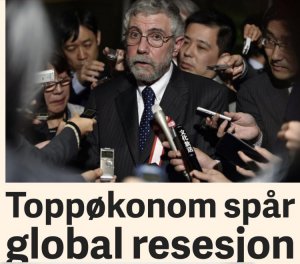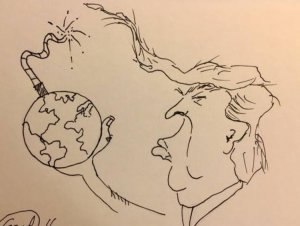...
Populism, then, is not just a form of political entertainment. One sometimes hears it said of Donald Trump: “Ah, he says wild things on the campaign trail, but when he is president it will be fine.” History suggests otherwise. It suggests that men who threaten to restrict immigration—as well as to impose tariffs and to discourage capital export, as populists generally do—mean what they say.
Indeed, populists are under a special compulsion to enact what they pledge in the campaign trail, for their followers are fickle to begin with. In the case of Trump, most have already defected from the Republican Party establishment. If he fails to deliver, they can defect from him, too.
Of course, populists are bound eventually to disappoint their supporters. For populism is a toxic brew as well as an intoxicating one. Populists nearly always make life miserable for whichever minorities they chose to scapegoat, but they seldom make life much better for the people whose ire they whip up.
...
Populists are not fascists. They prefer trade wars to actual wars; administrative border walls to more defensible fortifications. The maladies they seek to cure are not imaginary: uncontrolled rising immigration, widening inequality, free trade with “unfree” countries, and political cronyism are all things that a substantial section of the electorate have some reason to dislike. The problem with populism is that its remedies are wrong and, in fact, counterproductive.
What we most have to fear—as was true of Brexit—is not therefore Armageddon, but something more prosaic: an attempt to reverse certain aspects of globalization, followed by disappointment when the snake oil does not really cure the patient’s ills, followed by the emergence of a new and ostensibly more progressive set of remedies for our current malaise. The “terrible simplifiers” may have their day then. But they will end up yielding power to well-intentioned complicators, those more congenial to educated elites, but probably every a bit as dangerous, if not more so.









